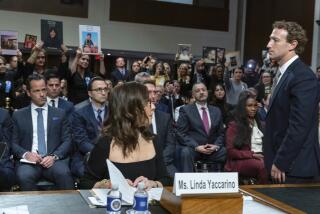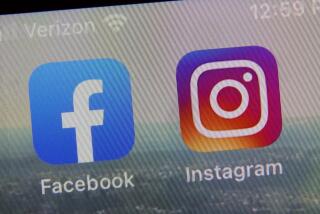With town hall, Obama-Facebook friendship continues
President Obama’s visit to the Palo Alto headquarters of Facebook Wednesday afternoon is just the latest chapter in a long commingling between the social media behemoth and a politician whose candidacy thrived thanks in part to its growing reach.
Obama’s stop is the latest in his Shared Responsibility and Shared Prosperity town hall series, where he’ll pitch his deficit reduction plan and address continued economic angst while taking questions from some of the network’s 500 million users.
The California swing also has a distinctly campaign feel, with the president planning to attend a half dozen fundraisers in both the San Francisco and Los Angeles areas in the next 48 hours.
And the Facebook town hall, while an official event, just so happens to come two weeks after Obama launched his 2012 re-election bid – a rollout that included a Facebook drive for users to announce they were “IN” as well.
The 2008 Obama campaign owes some of its success to its social media dominance. One of the campaign’s early hires was Chris Hughes, a Facebook co-founder. He headed up online organizing through the My.BarackObama.com platform, considered the gold standard in online organizing that other campaigns now emulate.
The connections don’t end there. Facebook founder Mark Zuckerberg was among a dozen Silicon Valley executives that Obama dined with in February. Facebook COO Sheryl Sandberg attended a meeting at the White House Tuesday with the president to discuss immigration reform.
And former White House press secretary Robert Gibbs had been speaking with Facebook executives about a role as a public spokesman for the company, though that courtship has reportedly fizzled.
Having such a symbiotic relationship between a political campaign and an increasingly powerful platform is a concern for some Republicans, who are working to up their game. Tim Pawlenty, the former Minnesota governor, announced his exploratory committee on his Facebook page, as did Mitt Romney weeks later in a rollout that also included a tweet.
A Harvard Institute of Politics study released this month found that in a survey of members of the so-called “Millenial” generation, 27% said that “advocating for a political position by using online tools like Facebook” makes more of an impact than in-person advocacy. Facebook status updates ranked second behind major national newspapers as a source of information about the 2012 campaign.
michael.memoli@latimes.com
More to Read
Get the L.A. Times Politics newsletter
Deeply reported insights into legislation, politics and policy from Sacramento, Washington and beyond. In your inbox three times per week.
You may occasionally receive promotional content from the Los Angeles Times.







